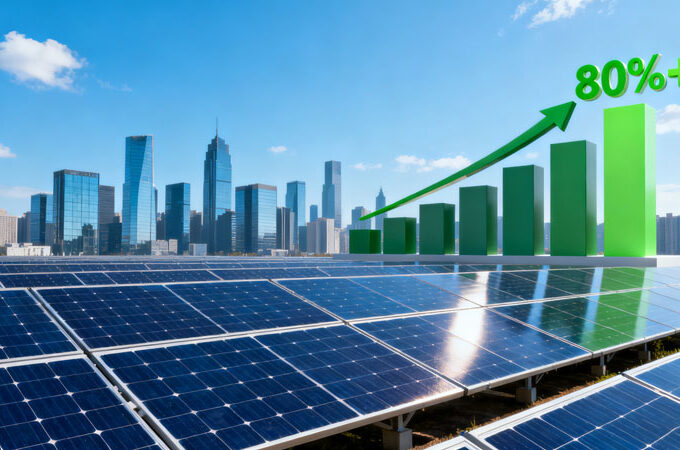On May 14, U.S. President Joe Biden announced additional tariffs on imports of electric vehicles, lithium batteries, and other products from China, building on existing Section 301 tariffs. In an interview, former board member of the Australia China Business Council and Australian representative to the Silk Road International Chamber of Commerce, Daryl Guppy, stated that the U.S. narrative of “China’s overcapacity” is part of its overall strategy against China. The imposition of tariffs aims to hinder China’s progress, reflecting America’s return to protectionism.
U.S. and Western Hype on “Overcapacity”
Aimed at Suppressing China’s Advanced Industries
Recently, U.S. Treasury Secretary Janet Yellen and other Western officials have repeatedly raised the so-called “China’s overcapacity” argument. Guppy countered this, saying that it is the U.S. and Europe that previously chose not to participate in these fields’ development.
Using the electric vehicle (EV) industry as an example, he explained, “China has been deeply involved in this industry for years, and many countries welcome Chinese exports, which is natural because these products fill gaps caused by their own developmental shortcomings.”
Guppy emphasized, “Now, the U.S. intends to halt China’s progress in the new energy sector, which clearly is a double standard, as the U.S. Inflation Reduction Act provides substantial subsidies to its new energy industry.”
“In reality, this is just another way to support trade protectionism and tariff barriers,” Guppy said. “‘China’s overcapacity’ is part of the U.S.’s overall strategy to obstruct China, restrain its development, and prevent its progress. At its core, it is anti-competitive behavior.”
In response to related issues, Chinese Foreign Ministry spokesman Wang Wenbin also commented on May 14, stating that according to the U.S. logic, American subsidies are considered “critical industry investment,” while subsidies by other countries are seen as “unfair competition.” U.S. exports of competitive products are termed “free trade,” while other countries’ exports are labeled “overcapacity.”
No Risk of Oversupply in the New Energy Sector
China’s New Energy Development is a Boon
Currently, the world is pushing for energy transition and upgrading, requiring new energy sources to gradually replace traditional ones. This means there is a significant demand for the new energy industry now and in the future. In the interview, Guppy also stated that there is no risk of oversupply in China’s new energy sector. “Countries worldwide are striving to meet their 2050 climate goals, and to achieve this, they will undoubtedly choose Chinese-made solar panels.”
Guppy analyzed, “Solar panels produced in some countries are more expensive and likely less efficient than those made in China. Therefore, cooperation with China is the right approach.”
Additionally, Guppy refuted claims of “dumping” regarding Chinese electric vehicles, stating, “This actually indicates a massive demand for EVs in the international market, and China can meet this demand.”
He pointed out that China’s years of development in the EV sector have enabled it to develop methods and technologies to improve production efficiency, while the U.S. is still in its infancy. Therefore, the U.S. can only continuously urge countries not to use Chinese EVs and instead opt for their higher-priced, less efficient alternatives.
“Some Western countries only care about their own economic development, rather than global climate goals. They will never admit that Chinese-made EVs are developing faster, more efficient, and more competitively priced,” Guppy lamented. “For the world, China’s EV development is a boon.”
Raising Trade Barriers
The U.S. is Regressing
“In the current global context, the U.S. is raising trade barriers,” Guppy stated. “If this continues, the situation will worsen because it signifies a regression to the era of tariff barriers, protectionism, and high-cost, low-quality products.”
“Therefore, we must actively oppose the trade protectionist measures taken by the U.S. and the West to combat this trend,” Guppy concluded.












